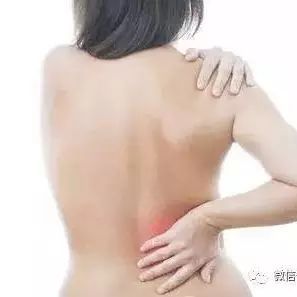Disease Inquiry, Health Guidance, Classic Health Preservation, No Need to Seek Help When Sick
In Traditional Chinese Medicine (TCM), it is believed that when Qi is disturbed, illness arises; when Qi is deficient, symptoms occur; and when Qi is completely exhausted, death follows. Qi is the foundation of life; without it, the body withers like a tree without roots. If we compare a person to a tree, Qi represents the roots, while the body is the trunk and leaves. A deep root leads to lush leaves, and abundant Qi ensures a long life. People often refer to death as “breaking Qi,” indicating that life depends on a breath of Qi; when a person dies, Qi disperses. When the body’s Qi weakens, Qi and blood circulation becomes obstructed, Yin and Yang become unbalanced, and various diseases invade. In men, Qi deficiency refers to kidney Qi deficiency, which corresponds to what Western medicine describes as sexual dysfunction and prostate diseases, commonly known as kidney deficiency.
Typically, people do not clearly understand the difference between kidney deficiency and Qi deficiency. When symptoms such as shortness of breath, excessive sweating, physical weakness, and sexual dysfunction appear, they immediately think of kidney deficiency, leading to attempts to tonify the kidneys and enhance Yang. But have they considered where kidney deficiency originates? Kidney deficiency begins with Qi deficiency; Qi deficiency is the root cause of kidney deficiency. This explains why patients with erectile dysfunction and sexual dysfunction often experience fatigue, shortness of breath, excessive sweating, lower back pain, and weakness in the legs, feeling as if they are constantly out of breath.
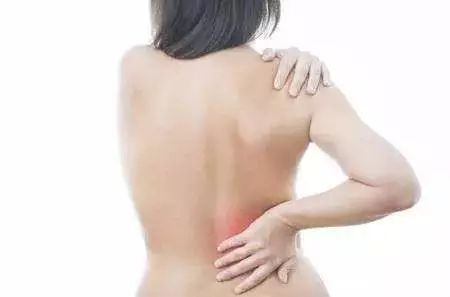
One patient presented with eyelid swelling, pale complexion, self-reported leg weakness, poor sleep, and significant issues with sexual activity. At just fifty years old, he felt powerless. Despite daily consumption of medicinal wine and continuous use of ginseng and cordyceps, he remained weak, with frequent urination and a red, thick, and greasy tongue coating. Patients with Qi deficiency have insufficient kidney essence; attempting to enhance sexual function through kidney tonification is like drawing water from a pond— the more you draw, the drier it becomes. To enhance sexual function, one must first tonify Qi for life; treatment should primarily focus on Qi tonification, ensuring smooth urinary flow before proceeding to tonify the kidneys. This is the correct treatment approach.
Kidney deficiency should first be addressed by tonifying Qi; otherwise, the more one supplements, the weaker one becomes, because the root of kidney deficiency is Qi deficiency. Just like a car with engine problems cannot run far, no matter how much gasoline is added. In daily life, we should regulate our diet, maintain regular physical exercise to enhance the flow of Qi in the body, and reduce the accumulation of body fat. Obesity often leads to kidney deficiency, making weight control particularly important for middle-aged men.
Early Symptoms of Qi Deficiency: Shortness of breath, frequent spontaneous sweating, fatigue, dizziness, difficulty concentrating, low speech, dry eyes, bitter mouth, lower back pain, leg weakness, constipation or diarrhea, yellow and painful urination, low interest in sexual activity, cold hands and feet, obesity with cold intolerance, poor appetite, and restless sleep. If four or more symptoms appear, Qi deficiency can be confirmed.
Symptoms of Qi Deficiency: Shortness of breath, chest tightness, overall weakness, mental fatigue, headaches, irritability, dizziness, abdominal fullness, a feeling of heaviness in the lower abdomen, urgency and frequency of urination, painful urination, erectile dysfunction, premature ejaculation, insomnia, hair loss, numbness in limbs, joint spasms, night sweats, vivid dreams, and disordered thinking. If three or more symptoms appear, a diagnosis of Qi deficiency can be made.
Three Types of Qi: How Should Qi Deficiency Be Supplemented?
In TCM, Qi is generally divided into three aspects: the first is Yuan Qi (Original Qi), which is inherited from parents and is innate; the second is the Qi derived from food and water, which is obtained through the transformation of food by the spleen and stomach; the third is the clear Qi inhaled by the lungs, which corresponds to what we commonly refer to as air and primarily depends on lung function. The health of the human body is closely related to these three types of Qi; any issue with one aspect can lead to a loss of vitality.
When Qi is compromised, the direct manifestation is Qi deficiency. Commonly seen in individuals with chronic illnesses, severe diseases, excessive fatigue, postnatal care deficiencies, or the elderly and weak, due to the decline of organ function, they exhibit low energy, quiet speech, weak voices, fatigue, shortness of breath, dizziness, and a pale complexion, leading to a series of health issues. Here are seven signs of insufficient Yuan Qi:
1. Hands and feet are easily cold, especially in winter.
2. The uterus, ovaries, and breasts are prone to cysts, fibroids, and tumors.
3. Prone to hair loss.
4. Urgency and frequency of urination; after 40, severe cases may lead to incontinence.
5. Prone to varicose veins, leg swelling, or rheumatism, lower back pain, bone hyperplasia, tinnitus, and hearing loss.
6. Experiences mental fear, restless sleep, and early morning diarrhea.
7. Enters menopause too early.
How can we maintain our Qi? There are three important acupoints: Qihai (Sea of Qi), Shanzhong (Center of the Chest), and Zusanli (Leg Three Miles), which are all effective.
1. Qihai
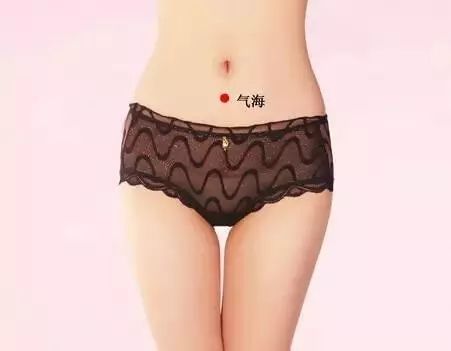
Function: As the name suggests, it is the ocean of the body’s original Qi, possessing a high capacity for replenishing Yuan Qi. TCM classics state that Qihai can treat all diseases caused by Qi deficiency, such as weak organ Qi and insufficient true Qi, making it the first choice for Qi tonification.
Location: Qihai is an acupoint on the Ren Meridian, easily located 1.5 cun below the navel (Shenque point refers to the navel). You can measure 1.5 cun by placing four fingers together, measuring from the navel downwards; the width of four fingers is 3 cun, and half of that is 1.5 cun, or as shown in the image, two fingers also equal 1.5 cun.
Technique: Qihai is a very important strengthening acupoint for the whole body, and moxibustion is the best method. You can use moxa sticks for 5-14 cones or moxa rolls for 20-30 minutes. Regularly moxibusting Qihai can strengthen the foundation and provide excellent preventive health benefits.
2. Shanzhong
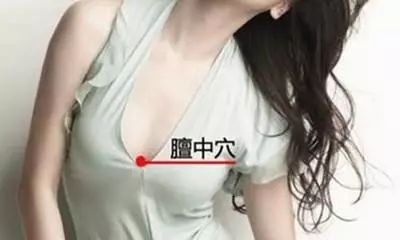
Function: Known as the upper Qihai, its main function is to regulate and benefit lung Qi, harmonizing the Qi throughout the body, especially beneficial for lung health. Using Shanzhong in conjunction with Qihai can both replenish Yuan Qi and regulate lung Qi, ensuring smooth Qi flow and maintaining overall health.
Shanzhong Acupoint
Location: Shanzhong is easy to find, located at the midpoint between the two nipples on the chest.
Technique: Regularly massaging Shanzhong for health maintenance is beneficial, or you can use moxa rolls for 20-30 minutes. When people are sad, they often pound their chest, which is precisely where Shanzhong is located. This has scientific reasoning: pounding the chest is essentially massaging Shanzhong, promoting smooth lung Qi and alleviating depression. Additionally, chest pounding stimulates the thymus in the chest, which has immune-regulating effects.
3. Zusanli
Function: Zusanli can replenish both spleen and stomach Qi as well as Yuan Qi. As mentioned earlier, the Qi derived from food and water is an important component of Qi, so using Zusanli for Qi tonification is essential.
Location: How to find Zusanli? I have two methods. The first method: while sitting, when the lower leg and thigh form a right angle, measure four horizontal fingers down from the outer knee, which is 3 cun, and then measure one finger (middle finger) towards the front edge of the tibia. The second method: while standing, place the palm of the same side hand open around the outer edge of the patella, with the four fingers pointing down; the point where the middle finger points is Zusanli.
Technique: For health maintenance at Zusanli, moxibustion is best, using moxa rolls for 20-30 minutes, and it can be moxibusted regularly.
Now you can see the wonders of using Qihai, Shanzhong, and Zusanli to greatly replenish Yuan Qi. Using Qihai to replenish Yuan Qi, Shanzhong to regulate lung Qi, and Zusanli to replenish spleen and stomach Qi, thus simultaneously supplementing the three types of Qi—innate Qi, food-derived Qi, and clear Qi—strengthens the original driving force of life, making it difficult for the body to be unwell.
It is particularly noted that the method of using Qihai, Shanzhong, and Zusanli to replenish Yuan Qi can serve as a basic method for health maintenance in middle-aged and elderly individuals. Regular use can strengthen the body, prevent diseases, and prolong life. Additionally, issues such as constipation, difficulty urinating, and frequent colds, as well as low immunity, can also be treated using this method.
What Chinese patent medicines should be taken for Qi deficiency?
Shiquan Dabu Wan (Ten Complete Great Tonifying Pills)
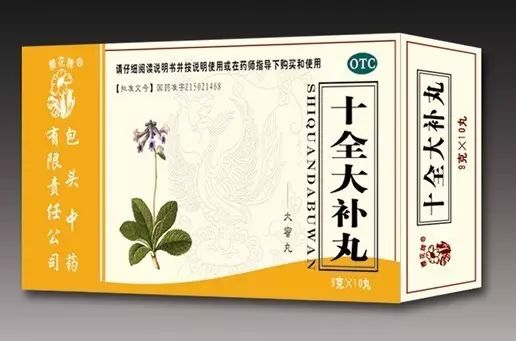
This is a Qi and blood tonifying agent with warming properties. It is used for Qi and blood deficiency, pale complexion, shortness of breath, palpitations, dizziness, spontaneous sweating, fatigue, cold extremities, and heavy menstrual flow. This product is a brown to black-brown water honey pill or large honey pill; it has a fragrant aroma and a sweet, slightly spicy taste. Oral dosage: 30 pills (6 grams) each time, 2-3 times a day.
The formula includes Ren Shen (Ginseng), Bai Zhu (White Atractylodes), Bai Fu Ling (White Poria), and Gan Cao (Licorice), which are the four gentlemen of the Four Gentlemen Decoction, benefiting Qi, tonifying the middle, and strengthening the spleen and stomach; Dang Gui (Angelica Sinensis), Shu Di Huang (Rehmannia), Bai Shao (White Peony), and Chuan Xiong (Chuanxiong) are the four herbs of the Four Substances Decoction, nourishing blood, enriching Yin, and benefiting the liver and kidneys; Huang Qi (Astragalus) greatly tonifies lung Qi, and when used with the Four Gentlemen, enhances the Qi tonifying effect, while Rou Gui (Cinnamon) warms the spleen and stomach. The combination of these herbs works together to warm and tonify Qi and blood.
Xiangsand Liujunzi Wan (Fragrant Sand Six Gentlemen Pills)
Finely ground into powder, each ingredient includes 30 grams of fresh ginger and jujube, decocted into a soup to form pills about the size of green beans, yielding approximately 300 grams. Take 6 grams twice daily after meals with warm water.
This formula contains Mu Xiang (Aucklandia), Sha Ren (Amomum), Chen Pi (Tangerine Peel), Zhi Ban Xia (Processed Pinellia), Dang Shen (Codonopsis), Bai Zhu (White Atractylodes), Fu Ling (Poria), and Zhi Gan Cao (Honey-fried Licorice), which benefit Qi, strengthen the spleen, and harmonize the stomach.
Gui Fu Di Huang Wan (Cinnamon and Aconite Rehmannia Pills)
This is a tonifying agent with warming properties, primarily treating kidney Yang deficiency, lower back and knee soreness and coldness, limb swelling, and difficulty or excessive urination, phlegm, cough, and thirst.
This product is a black-brown water honey pill or small or large honey pill; it has a sweet and slightly sour, spicy taste. Oral dosage: 6 grams for water honey pills, 9 grams for small honey pills, and 1 pill for large honey pills, taken twice daily.
This formula includes Di Huang (Rehmannia), Shan Zhu Yu (Cornus), which tonify kidney Yin; Shan Yao (Chinese Yam) and Fu Ling (Poria) strengthen the spleen and drain dampness; Ze Xie (Alisma) drains water from the kidneys; Mu Dan Pi (Moutan) clears liver and gallbladder fire; Rou Gui (Cinnamon) and Fu Zi (Aconite) warm and tonify the true fire of the life gate. The combination of these herbs works together to warm and tonify kidney Qi.
Qi Ling Yi Qi Granules (Qi Ling Energy Supplement Granules)
These granules benefit Qi and stabilize the foundation. They are used for fatigue and weakness due to kidney Qi deficiency, poor appetite, low energy, and weakness in the lower back and knees.
Take 3 grams with warm water three times a day. A month constitutes one treatment course. Patients with chronic diseases such as hypertension, heart disease, liver disease, diabetes, and kidney disease should take them under the guidance of a physician. Not suitable for patients with colds or fevers.
The above are four types of Chinese patent medicines that can tonify Qi and regulate Qi deficiency. It is best to consult a local professional physician before taking Chinese patent medicines to avoid unnecessary harm.
What foods are good for Qi deficiency? Here are five effective foods for regulating Qi deficiency!
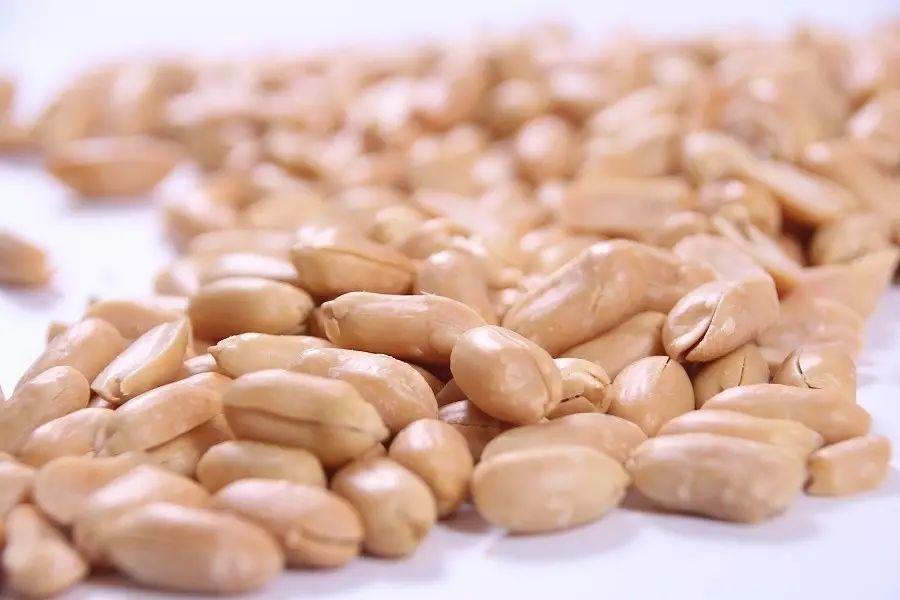
Peanuts
Peanuts are rich in protein, fat, and various vitamins, calcium, phosphorus, iron, and other minerals. The fats in peanuts are mostly unsaturated fatty acids such as oleic acid and linoleic acid, which help lower cholesterol and have excellent beauty benefits. Red Dates
Red dates can invigorate blood circulation, regulate menstruation, and nourish the heart and calm the mind, improving symptoms of insomnia and dark circles, and can help with skin blemishes and promote a rosy complexion.
Bamboo Shoots
Bamboo shoots are rich in protein, amino acids, fats, sugars, calcium, phosphorus, iron, carotene, and vitamins B1, B2, and C. Sea cucumbers, being extremely low in cholesterol, are a typical high-protein, low-fat, and low-cholesterol food.
Moreover, their tender texture makes them easy to digest, making them very suitable for the elderly, children, and those with weak constitutions.
Chestnuts
Chestnuts can nourish the stomach and strengthen the spleen, tonify the kidneys, and invigorate blood circulation.
Chinese Cabbage
Chinese cabbage is sweet and neutral in nature, with effects of clearing heat, relieving irritability, quenching thirst, and promoting urination. Regular consumption can prevent vitamin C deficiency.
The reason for a dull complexion is insufficient kidney Qi and deficiency of Yin fluids, while chestnuts nourish the spleen and tonify the kidneys, and Chinese cabbage nourishes Yin and moistens dryness, working together to improve complexion.

Follow Mai Mai Health to inquire about the following diseases (Disease Search)
Childhood fever, childhood diarrhea, night crying, pediatric massage, pediatric knowledge, lower back pain, male health, kidney tonifying dietary therapy, strengthening waist exercises, lumbar disc herniation, back pain, leg pain, cervical spondylosis, liver disease, liver health, alcohol detoxification, stomach diseases, constipation, abdominal protrusion, gynecology, menstrual care, breast hyperplasia, breast cancer, postpartum care, acne, white hair, hair loss, breast enhancement, beauty, skin diseases, gallstones, pharyngitis, gout, toothache, snoring, oral ulcers, rhinitis, eye diseases, hands and feet, colds, coughs, insomnia, hemorrhoids, cerebral hemorrhage, hypertension, diabetes, heart disease, cardiovascular diseases, cancer, food properties, blood tonification, weakness, obesity, slim legs, slim waist, dampness, meridians, Chinese patent medicines, hiccups
Diagnosis: Differentiation, back diagnosis, facial diagnosis, acne, menstruation, tongue diagnosis, blue veins, sweat diagnosis, eye diagnosis, nails, navel (finding the cause)
Treating Hundreds of Diseases: Meditation, stretching, back rolling, guasha, tapping, cupping, gallbladder meridian tapping, earth muscle rubbing, vinegar-soaked eggs, abdominal moxibustion, ginger, acupoint pressing, folk remedies, moxibustion, high leg raises

